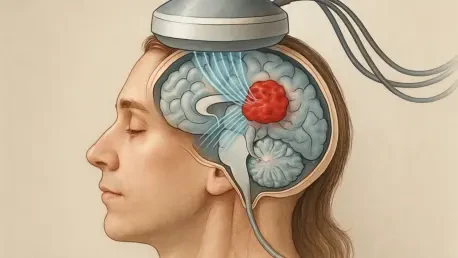

Julia Lainster sits down with Ivan Kairatov, a seasoned biopharma leader with deep experience in oncology R&D, to unpack the latest data from OptiTROP-Lung05 and what it could mean for first-line NSCLC. They explore how a TROP2-directed antibody-drug conjugate combined with an immune checkpoint

Could a single seed pull double duty against inflammation, oxidative stress, microbes, and metabolic drift without the side-effect ledger that shadows many prescriptions, and could it do so in a way that complements rather than competes with standard care? That is the provocation driving a surge of

Wrist fractures, specifically distal radius fractures, rank among the most frequent orthopedic injuries, particularly impacting older adults who are prone to falls or trauma. These injuries often disrupt daily routines with persistent pain and limited mobility, making recovery a frustratingly slow

In an era where digital innovation drives most industries forward, the healthcare sector often finds itself tethered to outdated technologies like fax machines, largely due to stringent privacy regulations and interoperability barriers. At the University of Pennsylvania Health System (UPHS), part

In the intricate landscape of drug discovery, pinpointing effective inhibitors for Protein Tyrosine Phosphatase 1B (PTP1B) stands as a monumental challenge with profound implications for treating metabolic disorders such as diabetes and obesity. PTP1B is a key player in regulating insulin signaling

I'm thrilled to sit down with Ivan Kairatov, a renowned biopharma expert whose pioneering work in technology and innovation has pushed boundaries in medical research and development. With a deep focus on cutting-edge solutions, Ivan has been at the forefront of exploring focused ultrasound as a

In a significant stride toward better healthcare access, Upper River Valley Hospital in New Brunswick, Canada, has welcomed the arrival of a prefabricated modular MRI unit, marking a pivotal moment for the region’s medical landscape. This development promises to bring advanced diagnostic imaging

Could a machine hold the key to ending one of humanity’s most persistent health crises? At Scripps Research, a staggering $1.1 million investment in artificial intelligence (AI) is igniting a new chapter in the fight against HIV, a virus that continues to impact over 40 million people worldwide.

In the heart of Jacksonville, Florida, a storm of controversy is brewing over the city’s telehealth provider, Telescope Health, as allegations of potential Medicaid and Medicare fraud come under intense scrutiny. The Duval DOGE Special Committee, spearheaded by Councilmember Rory Diamond from

What lies at the heart of life’s intricate design, shaping everything from a single cell to the complex tissues of the human body? The answer may surprise many: it’s not just the cells themselves, but the unseen network surrounding them, known as the extracellular matrix (ECM). This dynamic web of
ITCurated uses cookies to personalize your experience on our website. By continuing to use this site, you agree to our Cookie Policy